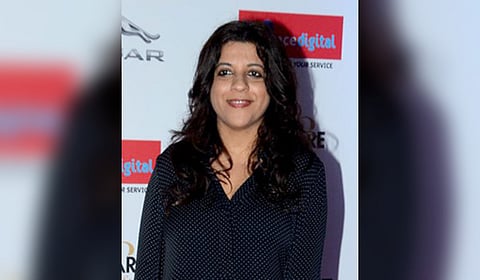

Lyricist-screenwriter Javed Akhtar and his filmmaker daughter Zoya Akhtar graced the latest session of Expresso held on Thursday in Mumbai. The duo, known for their thought-provoking insights and candid opinions, shared a heartfelt conversation about their love for literature, cinema, and each other.
Zoya, who recently directed The Archies adaptation for Netflix and produced the coming-of-age drama Kho Gaye Hum Kahan, opened up about the lack of censorship on OTT and whether its limiting or liberating her as a director.
She dismissed the argument that sublimation makes better art than explicitness, arguing against censorship in the portrayal of physical intimacy.
“It is very important to showcase consensual intimacy on screen. I grew up at a time where women were bullied, beaten up, harassed and sexually assaulted on screen. All these were allowed, but you couldn’t see a kiss. People should be allowed to see love, tenderness, physical intimacy between two adults,” said Zoya, earning a warm round of applause from the audience.
Acknowledging the risks of a no-holds-barred approach, Zoya emphasised the importance of artistic choice. “Every film has a tone, and every filmmaker tells a story in a particular way. As opposed to Ramesh Sippy’s Sholay, where the choices of showcasing violence were ahead of its time, the violence in Tarantino’s films is operatic. It is all about what you are trying to evoke in the audience,” she explained.
Zoya also highlighted cultural differences in the portrayal of intimacy, noting, “The French are more open with male nudity compared to the Americans. It depends on how comfortable you are with yourself, how you view sex, how you view your body.”
Adding to the filmmaker's points her father, the legendary writer acknowledged the significance of intention. “If you are showing a love scene to titillate, that is different. If you want to evoke genuine romance and empathy, then it is different,” he said.
Reflecting on his own experiences, he remarked, “Even in my worst anger, I don’t use four-letter cuss words. But when I saw it being uttered on screen in Bandit Queen, I didn’t mind because the intention wasn’t to shock or titillate. Therefore, intention is very important.”